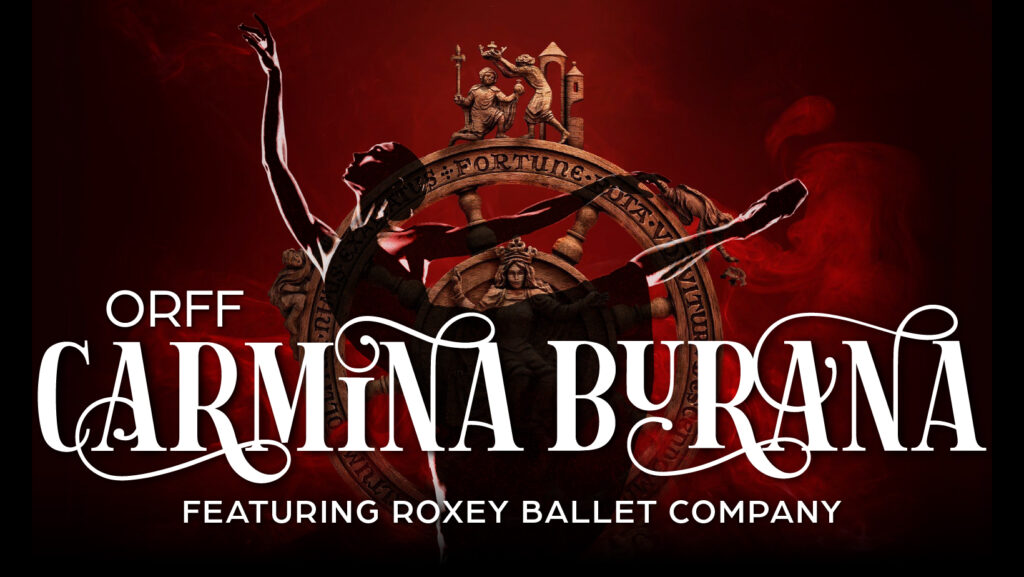An Evening of Music and Poetry with Lily Arbisser
March 4, 2022
7:30 p.m. EST, online
An Evening of Music and Poetry with Lily Arbisser
March 4, 2022
7:30 p.m. EST, online
PROGRAM
Opus 22 (1930)
Erich Wolfgang Korngold (1897-1957)
“Was do mir bist?”
“Mit dir zu schweigen”
“Welt ist stille eingeschlafen”
Homesick
a poem by an anonymous child from The Terezín Concentration Camp (9/3/1943)
read by Spencer Reece
Sonata for flute and piano (1943), no. 2 - Lento
Leo Smit (1900-1943)
David Ordovskiy, flute
Lead, Kindly Light (1945)
Henriëtta Bosmans (1895-1952)
Margaret
written and read by Spencer Reece
Seven Songs of Love and Sorrow (1977)
Ruth Schonthal (1924-2006)
“These are the Days”
“Wild Nights”
“Poor Bit of a Wench”
“The Dove Descending”
“A Woman’s Last Word’
“With Rue My Heart is Laden”
“Go from Me”
Lost in the Stars (from Lost in the Stars, 1949)
Kurt Weill (1900-1950)
PERFORMERS
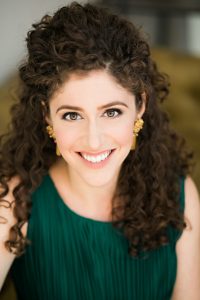
Lily Arbisser is an “individual-timbred soprano” (Opera News) whose voice “floats effortlessly” (www.feastofmusic.com) over the orchestra. Highlights of recent seasons include joining Ravinia’s Steans Music Institute in Chicago as a vocal fellow, winning first prize in the National Federation of Music Clubs’ (NFMC) Biennial Young Artist Competition, being a semi-finalist in the Kurt Weill Foundation’s prestigious Lotte Lenya Competition, and debuting at Weill Recital Hall at Carnegie Hall as Suzu in Riyoichi Saito’s chamber opera Dojoji.
Lily’s 2022 season begins with numerous solo appearances in the New York City area and in Iowa. She is particularly looking forward to singing with Princeton Pro Musica for their performance of James Whitbourn’s deeply moving oratorio Annelies. And she also anticipates a joyful return to her hometown, Davenport, Iowa, for her debut with Chamber Music Quad Cities as she and pianist Thomas Sauer present newly commissioned art songs setting poems by Quad Cities-area poets.
Lily holds a Bachelor of the Arts from Princeton University and a Master of Music from Mannes College. When not singing, she can be found outdoors cultivating a newfound passion for pollinators and native plant gardening. www.lilyarbisser.com
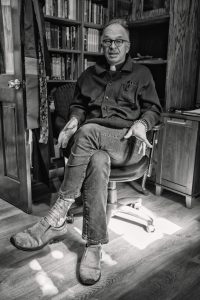
Father Canon Spencer Reece is the author of two prize-winning collections of poetry, The Clerk’s Tale and The Road to Emmaus, long-listed for the National Book Award. In 2017 he edited Counting Time Like People Counting Stars: Poetry by the Girls of Our Little Roses. The Secret Gospel of Mark: A Poet’s Memoir and All the Beauty Still Left: A Poet’s Painted Book of Hours arrived in 2021. He has worked as an Episcopal priest in Honduras, Spain, and New York City. He serves on the boards of the EcoTheo Collective, the Camino Anglican Center project to build a welcome center in Santiago, Spain for pilgrims and the Lorca Latinx Prize, which fosters the publication of a chapbook by a Latinx poet. He will be the guest preacher at the Church of the Transfiguration in Yellowstone National Park in 2022, and he has been asked to deliver a series of lectures on “A Poet Becoming a Priest” for Trinity Wall Street Retreat Center in 2021 and lead a retreat at the Holy Cross Monastery in upstate New York in 2021 or 2022.
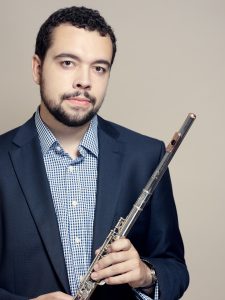 David Ordovskiy was born in 1989 in Kiev, Ukraine, and grew up in Saint Petersburg, Russia. Flute studies since age 5 with Alexander Kiskachi. Participant and prize-winner in various competitions and festivals in Russia, Israel, Bulgaria, Germany, and the Netherlands. Mr. Ordovskiy received a full scholarship to attend Idyllwild Arts Academy to study under Sara Andon, and later joined Judith Mendenhall's studio at the Mannes School of Music, where he earned his Bachelor's Degree, Master’s Degree, and a Professional Studies Diploma. Career highlights include solo performances with the Yonkers Philharmonic Orchestra, the New Amsterdam Symphony Orchestra, as well as full-time work as 2nd Flute and Acting Principal Flute with the Reading Symphony Orchestra, and guest musician work with the American Ballet Theatre Orchestra. 1st Prize, New York Flute Club Competition, 2015. In addition to his performance work, Mr. Ordovskiy enjoys an active career as flute and piano instructor, currently running a large private teaching studio. www.davidordovskiyflute.com
David Ordovskiy was born in 1989 in Kiev, Ukraine, and grew up in Saint Petersburg, Russia. Flute studies since age 5 with Alexander Kiskachi. Participant and prize-winner in various competitions and festivals in Russia, Israel, Bulgaria, Germany, and the Netherlands. Mr. Ordovskiy received a full scholarship to attend Idyllwild Arts Academy to study under Sara Andon, and later joined Judith Mendenhall's studio at the Mannes School of Music, where he earned his Bachelor's Degree, Master’s Degree, and a Professional Studies Diploma. Career highlights include solo performances with the Yonkers Philharmonic Orchestra, the New Amsterdam Symphony Orchestra, as well as full-time work as 2nd Flute and Acting Principal Flute with the Reading Symphony Orchestra, and guest musician work with the American Ballet Theatre Orchestra. 1st Prize, New York Flute Club Competition, 2015. In addition to his performance work, Mr. Ordovskiy enjoys an active career as flute and piano instructor, currently running a large private teaching studio. www.davidordovskiyflute.com
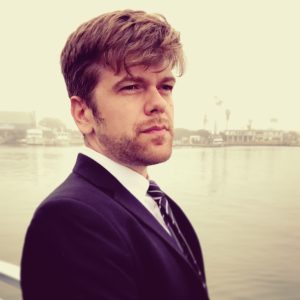 “Jason Wirth [spun] a gossamer web of unusual sounds on the piano,” writes the New York Times about the New York City-based pianist, conductor, and vocal coach. A talented collaborator and “an impressive musician in his own right” (NY Concert Review), Mr. Wirth draws on his varied interests to bring new perspectives into his music-making. Born in Minnesota, Mr. Wirth began performing extensively on the piano from a very young age, including early appearances with the Moscow Philharmonic and the St. Paul Chamber Orchestra as a soloist. Since then, Jason has played multiple recitals at Carnegie Hall and Philadelphia's Kimmel Center and his recording of Poulenc's The Story of Babar with film star Michael Douglas has been released on Naxos. As a expert vocal acncompanist and conductor, Jason has helmed many operas and other projects as music director, including Rigoletto and Carlisle Floyd’s Susannah with Lighthouse Opera, and Menotti’s The Medium, Kurt Weill's Street Scene, and Sondheim’s Into the Woods and Sweeney Todd with The Modern Opera Company in New York City, which he co-founded. www.jasonwirth.com
“Jason Wirth [spun] a gossamer web of unusual sounds on the piano,” writes the New York Times about the New York City-based pianist, conductor, and vocal coach. A talented collaborator and “an impressive musician in his own right” (NY Concert Review), Mr. Wirth draws on his varied interests to bring new perspectives into his music-making. Born in Minnesota, Mr. Wirth began performing extensively on the piano from a very young age, including early appearances with the Moscow Philharmonic and the St. Paul Chamber Orchestra as a soloist. Since then, Jason has played multiple recitals at Carnegie Hall and Philadelphia's Kimmel Center and his recording of Poulenc's The Story of Babar with film star Michael Douglas has been released on Naxos. As a expert vocal acncompanist and conductor, Jason has helmed many operas and other projects as music director, including Rigoletto and Carlisle Floyd’s Susannah with Lighthouse Opera, and Menotti’s The Medium, Kurt Weill's Street Scene, and Sondheim’s Into the Woods and Sweeney Todd with The Modern Opera Company in New York City, which he co-founded. www.jasonwirth.com
TEXTS AND TRANSLATIONS
| Was du mir bist? Poem: Eleanore van der Straaten (1845-?) Was du mir bist? Was du mir bist? Und war mein Leben auch Entsagen, Translation by: Uri Liebrecht What are you to me? What are you to me? And even if my life was one of resignation, |
|
|
Mit dir zu schweigen Mit Dir zu schweigen still im Dunkel, Mit Dir zu schweigen in der Dämmerzeit, Translation: Uri Liebrecht To sit with you in silence in the dark, To sit with you at twilight without words |
|
|
Welt ist stille eingeschlafen Welt ist stille eingeschlafen, Gottes Geige sinkt jetzt leise Strahlen seliger Lieb’ erhellen Translation: Uri Liebrecht When the world has gone to sleep, God’s violin sings sweetly Beams of blissful love light up |
|
|
Homesick from I Never Saw Another Butterfly: Children's Drawings and Poems from Terezin Concentration Camp, 1942–1944 I've lived in the ghetto here more than a year, Ah, home, home, I’d like to go back home again, I remember now those golden days... People walk along the street, Yet we all hope the time will come |
|
|
Lead, Kindly Light Lead, Kindly Light, amidst th'encircling gloom, I was not ever thus, nor prayed that Thou So long Thy power hath blest me, sure it still |
|
|
Margaret I remember she rented a room on the second floor from Jenny Holtzerman, an Austrian widow. The two women lived on Girard Avenue South, in Kenwood, an elegant suburb of Minneapolis. Any promise of husbands had disappeared long ago. From the kitchen I often remember the jelly smell of a Linzer torte. I was in high school and often eavesdropped. Once, quietly, she said to my mother, “I never knew the love of a man.” She spoke English with an Eastern European heaviness, the vowels thick as dumplings, weighed down by history, or was it disappointment? She had mentioned having a husband, but during the war they were separated in the chaos of Budapest, and later she lost track of him. Once she showed me her room: the walls were bare with cracks. Her daybed was narrow, barely slept in. Her room resembled hundreds of scant little rooms around the world, the way it accepted blue and purple-violet detail—on her bureau, no family photographs, instead playbills autographed by cast members, a calendar tattered, crossed, marked, no jewelry, some coins. Her window sashes warped, her wires shorted, and the paint around her doorframe kept chipping off—“like in The Cherry Orchard,” she said, “by Chekhov.” She told a joke in Hungarian to Hannah Tamasek and even I, not knowing a word, laughed. When she said the word “America,” she did so with a tone one associates with sacred things. She bowed gently in a manner distinctly Viennese and spoke on occasion of the Austro-Hungarian Empire. She loved the Guthrie Theater, where curtains rose on miniature worlds, preferring memorized dialogue and costumes to something truer. Five feet tall in orthopedic shoes, she limped. Time has a way of rearranging things and I could have most details wrong now, but there was this: during the war, she met a man, to whom she gave money, she did not know the man well, but had trusted him to smuggle her father across the border, the man pocketed the money, bought chocolates for his mistress from Belgium, and placed Margaret’s father on a train to Auschwitz. So it makes sense to me now that simple decisions baffled Margaret. It makes sense to me now that when news reached us of Primo Levi’s suicide, Margaret did not blink. It makes sense to me now that when Dr. Sikorski spoke of fighting in the Warsaw sewers, Margaret said, “I do not believe in God.” Those who saw what they saw grow fewer. Margaret has been dead a long time now. But perhaps you will understand why I chose her, why I smudged the slow waltz of her smile, adding a few strokes, here and here. As you leave Margaret behind and turn the page, listen as the page falls back and your hand gently buries her. This is what the past sounds like. |
|
|
Seven Songs of Love and Sorrow These are the Days These are the days when birds come back, These are the days when skies put on Oh, fraud that cannot cheat the bee, Till ranks of seeds their witness bear, Oh, sacrament of summer days, Thy sacred emblems to partake, Wild nights – Wild nights! Wild nights - Wild nights! Futile - the winds - Rowing in Eden -
Will no one say hush! to thee, The Dove Descending (from Little Gidding) The dove descending breaks the air A Woman’s Last Word I. II. III. IV. V. VI. VII. VIII. IX. X. |
|
| With Rue My Heart is Laden Poem: A.E. Housman (1859-1936) With rue my heart is laden By brooks too broad for leaping Go from Me (Sonnet VI) Go from me. Yet I feel that I shall stand |
|
|
Lost in the Stars Before Lord God made the sea or the land, Now, a man don't mind if the stars get dim |
|



